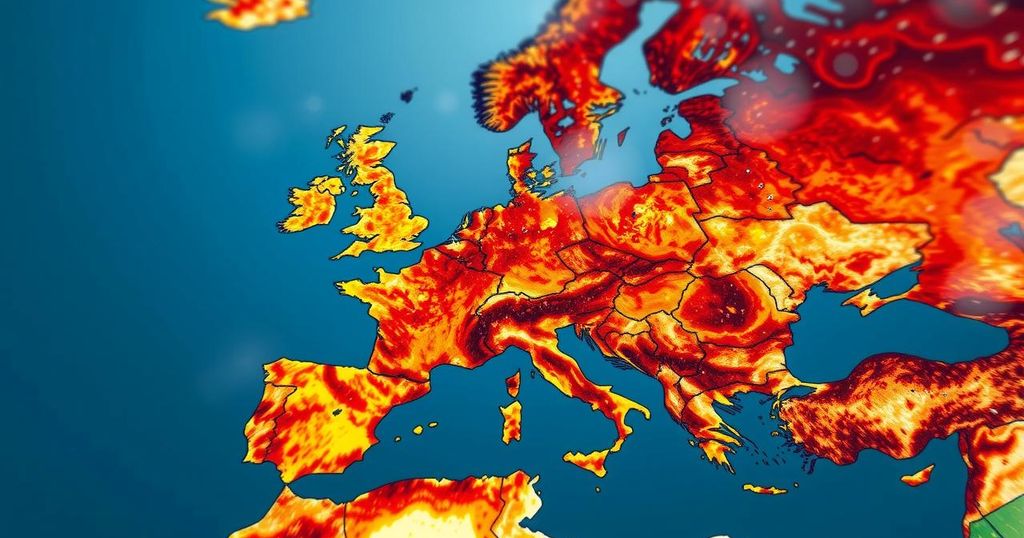The Copernicus climate agency projects 2024 will likely be the hottest year on record, exceeding 2023 temperatures. This increase is attributed to climate change and rising carbon emissions from fossil fuels. The findings were released ahead of the COP29 climate summit, where stronger actions to combat climate change are expected to be discussed. The implications include extreme weather events that threaten food security and ecosystems worldwide.
Europe’s climate agency, COPERNICUS, has reported that 2024 is on track to become the hottest year recorded, surpassing the previous record set in 2023. This alarming prediction comes as global average temperatures have significantly risen, likely exceeding 1.5 degrees Celsius above pre-industrial levels for the first time. The data, which was released ahead of the UN COP29 climate summit in Azerbaijan, underscores the urgent need for increased international efforts to combat climate change. The director of Copernicus, Carlo Buontempo, attributes the record temperatures to pervasive climate change, stating, “The climate is warming, generally. It’s warming in all continents, in all ocean basins.” He emphasizes that this warming is directly connected to ongoing carbon emissions from fossil fuel consumption, which drives the rise in global temperatures. Copernicus’ findings are derived from extensive data collection, including billions of measurements from various sources across the globe. Sonia Seneviratne, a climate scientist at ETH Zurich, echoed concerns about the predictions and called for more robust action regarding fossil fuel usage. “The limits that were set in the Paris agreement are starting to crumble given the too-slow pace of climate action across the world,” she noted. Many countries are striving to adhere to the 1.5-degree Celsius goal established in the 2015 Paris Agreement, yet experts predict this threshold may be surpassed as early as 2030. The implications of rising global temperatures are dire, contributing to extreme weather events, including devastating floods in Spain and substantial wildfires in Peru. Notably, flooding in Bangladesh resulted in substantial agricultural losses and increased food prices. The situation calls for immediate global cooperation and significant investment to mitigate the catastrophic impacts of climate change. The COP29 meeting seeks to unify international representatives in the shared commitment to address climate change through enhanced financial and collaborative strategies. The urgency of the matter is clear, given that rapid acceleration in temperature increase poses extraordinary threats to global ecosystems and human livelihoods.
As the impacts of climate change continue to escalate globally, scientists have increasingly focused on temperature records as indicators of environmental changes. The period from 1850 to 1900 is often referenced as pre-industrial, when the extensive burning of fossil fuels began to alter the Earth’s climate system. Recent data showcases an alarming trend where average world temperatures are predicted to exceed critical thresholds, prompting discussions on international climate agreements, such as the Paris Agreement, which aim to limit global warming to below 1.5 degrees Celsius. These escalating temperature levels are expected to have significant repercussions on extreme weather events worldwide, necessitating urgent action from leaders and scientists alike.
In summary, the latest predictions from the Copernicus climate agency underscore a troubling trend of warming, with 2024 poised to shatter previous temperature records. Underlining the dire consequences of carbon emissions from fossil fuels, climate experts urge swift global action to adhere to international climate agreements. Without immediate and effective measures, the threat of exceeding the 1.5 degrees Celsius limit and the compounding impacts of climate change will pose increasing risks to society and ecosystems across the globe.
Original Source: learningenglish.voanews.com







